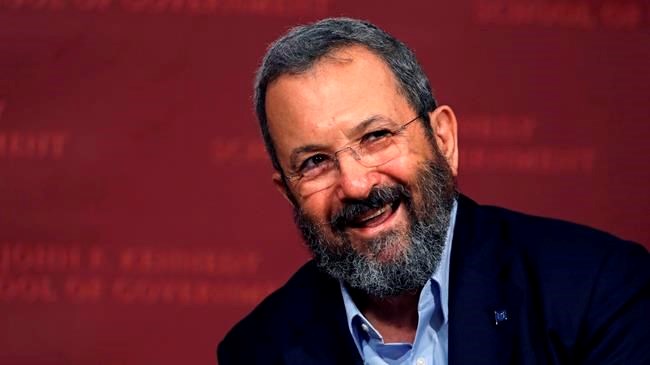HALIFAX — Leaders from democratic nations, including a former Israeli prime minister, are gathering Friday in Halifax for a three-day conference on global security.
This year, the annual Halifax International Security Forum is focused on the Ukraine war, but the fighting between Israel and Hamas will likely come up when former Israeli prime minister Ehud Barak participates in a discussion on Saturday with a PBS correspondent.
As the delegates gather, bloody street battles continue to rage in the Gaza Strip, and Global Affairs estimates about 386 people with connections to Canada are still attempting to flee the Palestinian territory.
Hamas militants stormed into Israel on Oct. 7, killing an estimated 1,200 people and taking 240 others back into Gaza as hostages. Israel has retaliated with airstrikes and a ground offensive that the Hamas-run health authority says has resulted in more than 11,000 casualties.
International pressure is increasing on Israel for a ceasefire, but Barak has said that the vast majority of Israelis are convinced that the war is just. He told the magazine Foreign Policy that other countries would have reacted the same way to a similar cross-border attack with mass casualties.
"The United States would do whatever it takes,'' he told the magazine. "They would not ask questions about proportionality or anything else.''
Prior to the attacks, Barak was critical of Israel Prime Minister Benjamin Netanyahu's attempts at overhauling the judiciary — which sparked massive street protests and other civil unrest — and was among the signatories of a letter blaming the highly contentious legislation for compromising Israel's security.
A former Israeli military chief of staff, Barak was appointed as a cabinet minister under prime minister Yitzhak Rabin in the early 1990s, and continued in government after Rabin was assassinated in 1995.Â
Barak served as the country's 10th prime minister, from 1999 to 2001. During his time in office he resumed peace negotiations with the Palestine Liberation Organization, and took part in the Camp David 2000 summit hosted by then-United States president Bill Clinton in an unsuccessful bid for a conflict-ending accord.
The Halifax forum includes a number of on-the-record plenary sessions, but there are also evening, off-the-record sessions that only delegates can observe. Nearly all the open sessions are focused on the Ukraine war and its connections to other global security issues such as food shortages and the climate crisis.
Forum president Peter Van Praagh said in a news release Thursday that he deliberately chose to keep the focus of the event on Ukraine, not Gaza, because switching the theme would have played into the agenda of non-democratic nations.
“Now (Russian President Vladimir) Putin is working to shift the world’s democracies’ attention — and their generous support for Ukraine — to other theatres," he wrote.
“The world’s democracies must come together to stop this multi-front attack.”
The theme of most open sessions suggest that a Ukraine win against Russia would lead to wider benefits for democratic nations, with the first plenary on Friday titled "Making the World Safe Again: Victory in Ukraine." That panel is scheduled to include Canadian Defence Minister and conference host Bill Blair along with United States Senators James Risch and Jeanne Shaheen, and Oleksandra Matviichuk, a Ukrainian human rights lawyer with the Center for Civil Liberties.
Risch, a Republican senator for Idaho, and Shaheen, a Democratic Party senator for New Hampshire, are senior members of the U.S. Senate foreign relations, armed services and appropriations committee and among the members of a congressional delegation that flies in for the forum each year.
Other events include discussions with Penny Pritzker, United States special representative for Ukraine’s economic recovery, and Roger Carstens, special presidential envoy for hostage affairs, both of whom are from the U.S. Department of State.
This report by The Canadian Press was first published Nov. 16, 2023.
— With files from The Associated Press.
Michael Tutton, The Canadian Press



